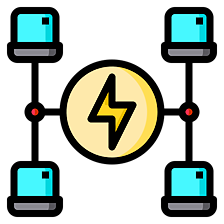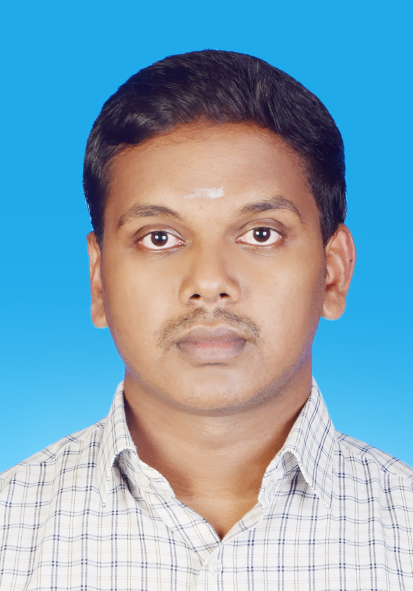FlexiMasters in Power Engineering
The FlexiMasters in Power Engineering is suitable for electrical engineering professionals, including power engineers, system designers, R&D managers, and industry planners seeking to advance their expertise in power systems and power electronics. This programme covers key areas such as power quality, power system modelling, grid planning, energy system operation and control, and electric drives technology. Learners will gain in-depth technical knowledge aligned with the evolving needs of the modern power and energy sector. Whether you are looking to upskill, reskill, or deepen your domain knowledge, this programme prepares you to meet the growing demands of smart grid, renewable energy integration, and sustainable power systems. This FlexiMasters is also stackable to NTU's Master of Science (MSc) in Power Engineering providing a pathway for those looking to further their academic and professional journey.
- Master In-Demand Power Engineering Skills: Gain knowledge in core areas such as power system operation, planning, and control, preparing you to address complex challenges in today’s evolving energy landscape.
- Deepen Expertise in Renewable and Smart Grid Technologies: Stay ahead in the energy transition with insights into renewable energy systems and their integration into smart grids, a critical skill set for the future of sustainable power systems.
- Enhance Technical Capabilities in Power Quality and Electrical Drives: Learn to diagnose and solve real-world issues related to power quality and modern electrical drives, essential for improving system efficiency and reliability.
- Lifelong Upskilling: Equip yourself with the knowledge and skills for continuous professional development, and apply new knowledge directly to your work in electrical engineering or power-related industries.
- The programme consists of five courses worth a total of 15 Academic Units (AUs).
- Assessment(s) will be conducted during every course and learners will be graded based on their performance in the assessment(s). Assessment(s) may include quizzes, assignments and final examination.
- No pre-requisites are needed to enroll in the individual courses; however, learners without qualifications or working experience in relevant engineering or the related fields may find the course contents challenging.
- Mode of class delivery: Face-to-face
Upon successful completion, the following qualifications will be awarded:
- A FlexiMasters will be awarded to learners attaining 15 AUs, and achieving a minimum Grade Point of 2.5 (which is equivalent to a letter grade of C+) for each course.
- A Graduate Certificate will be awarded to learners attaining 9 AUs, with a minimum Grade Point of 2.5 (which is equivalent to a letter grade of C+) for each course
Pathway to the Master's programme:
Credits earned are valid for 5 years for transfer of credits to the MSc in Power Engineering. The minimum Grade Point eligible for transfer of credits to the MSc in Power Engineering is 2.5 (which is equivalent to a letter grade of C+). Transfer of credits is by application and the application will be assessed and approved by the University in accordance with University Credits Transfer and Course Exemption Policy.
To meet the requirement of SkillsFuture Singapore, assessment(s) will be conducted during every course.
The assessment(s) include:
1. Renewable Energy Systems In Smart Grids
- Quizzes
- Take-home Assignments
- Final Exam
2. Power System Operation & Planning
- Quizzes
- Take-home Assignments
- Final Exam
3. Power Quality
- Quizzes
- Final Exam
4. Modern Electrical Drives
- Quizzes
- Take-home Assignment
- Final Exam
5. Power System Modelling & Control
- Quizzes
- Take-home Assignments
- Final Exam
| Course title | Objective |
|---|---|
 Renewable Energy Systems In Smart Grids (3 AU) | This course introduces learners to renewable energy systems and distributed generation technologies. Learners will explore the design and application of systems such as solar photovoltaics, wind turbines, fuel cells, micro-turbines, and micro-hydro generation—whether connected to a utility grid or a microgrid. The course also covers energy storage solutions and smart grid technologies, including advanced metering infrastructure, demand-side and response management, and electric vehicles. By the end of the course, learners will gain practical knowledge to support sustainable, energy-efficient solutions for the future. Ideal for those interested in green energy and smart grid innovations. At the end of the course, learners will be able to:
|
 Power System Operation & Planning (3 AU) | This course equips learners with essential knowledge in power system planning and operations. Learners will explore key areas such as load forecasting, generation scheduling, network operations, reliability analysis, and planning for both power generation and transmission. The course offers a comprehensive understanding of how modern power systems are managed to ensure efficiency, reliability, and sustainability. This course is ideal for learners interested in energy systems, electrical engineering, or pursuing careers in the power and utilities sector. At the end of the course, learners will be able to:
|
Power Quality (3 AU) | This course provides learners with essential knowledge of power quality in modern electrical distribution systems. As reliability and availability improve, power quality has become a key focus. Learners will explore the fundamentals of power quality issues, including electromagnetic disturbances and their impact on electrical systems. The course also covers how to identify, analyse, and address power quality problems through practical, cost-effective solutions. This course is ideal for learners interested in electrical engineering, energy systems, and improving efficiency in power distribution. At the end of the course, learners will be able to:
|
 Modern Electrical Drives (3 AU) | This course equips learners with core knowledge of electromechanics and electric motor drive systems. Based on electric machinery theory, it covers key concepts in energy conversion and motor design. Learners will explore the principles of electrical drives, gain practical skills in designing common types of electric motors, and learn how to assess dynamic performance. The course also explains the relationship between motor parameters and system behaviour. This course is ideal for learners interested in electrical engineering, power systems, and motor drive technologies. At the end of the course, learners will able to:
|
Power System Modelling and Control (3 AU) | This course provides learners with essential knowledge in power system modelling and control. Key topics include modelling of power networks, generating units, and loads, as well as power system stability and control techniques for improving system performance. Learners will explore advanced methods such as Flexible Alternating Current Transmission Systems (FACTS) and gain practical insights into real-world challenges in power system control. The course also introduces modern tools for system analysis and stability enhancement, making it ideal for learners interested in power engineering, energy systems, and those considering advanced research in the field. At the end of the course, learners will be able to:
|
Venue: NTU Main Campus
Date: 12 January 2026 to 17 April 2026 (13 teaching weeks), Recess week from 2 March 2026 to 6 March 2026.
Listed courses are:
- Credit-bearing and stackable to Graduate Certificate in Power Engineering (9 AU), FlexiMasters in Power Engineering (15 AU) and MSc in Power Engineering (30 AU).
Note: NTU reserves the right to change the date, venue, and mode of delivery due to unforeseen circumstances.
These courses are part of:
Learners will receive their Statement of Accomplishment (for a grade of D and above) or Certificate of Participation for each course—dependent upon their assessment performance. |
Programme Fee: S$28,078.40 (inclusive of GST)
| SSG Funding Support | BEFORE funding & GST | AFTER SSG funding (if eligible under various schemes) & 9% GST | ||
| Programme Fee | Course Fee | Programme Fee Payable | Course Fee Payable | |
Singapore Citizen (SC) and Permanent Resident (PR) (Up to 70% funding) | S$25,760 | S$5,152 | S$8,423.52 | S$1,684.70 |
| Enhanced Training Support for SMEs (ETSS) | S$25,760 | S$5,152 | S$3,271.52 | S$654.30 |
Singapore Citizen aged ≥ 40 years old SkillsFuture Mid-career Enhanced Subsidy (MCES) (Up to 90% funding) | S$25,760 | S$5,152 | S$3,271.52 | S$654.30 |
- NTU/NIE alumni may utilise their $1,600 Alumni Course Credits for each course. Click here for more information.
- Learners can utilise their SkillsFuture Credits for these courses.
- Singaporeans aged 40 years and above are able to use their SkillsFuture Credit (Mid-Career) top-up of $4,000 to offset the course fees after SSG funding.
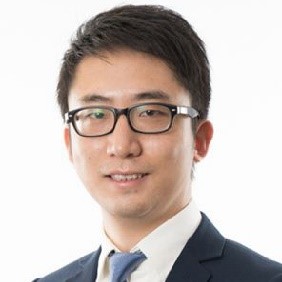 Assoc Prof Xu Yan
| Yan Xu received the B.E. and M.E degrees from South China University of Technology, Guangzhou, China in 2008 and 2011, respectively, and the Ph.D. degree from University of Newcastle, Australia, in 2013. After the postdoctoral training with University of Sydney Postdoctoral Fellowship, he joined Nanyang Technological University (NTU) with the Nanyang Assistant Professorship. He was promoted to Associate Professor in 2021 and appointed as the Cham Tao Soon Professor in Engineering (an endowed professorship named after the founding president of NTU) in 2024. At NTU, he is serving as the Director of Center for Power Engineering (CPE), and Co-Director of Singapore Power Group–NTU Joint Lab. His research interests include power system stability and control, microgrids, and data-analytics for smart grid applications. Dr Xu is the recipient of the Nanyang Research Award (Young Investigator) by NTU, and the Outstanding Engineer Award by IEEE Power & Energy Society (PES) Singapore Chapter. Dr Xu’s professional service roles include Associate Editor for IEEE Trans. Smart Grid and IEEE Trans. Power Systems, Chairman of IEEE PES Singapore Chapter (2021 and 2022), and the General Co-Chair of the 11th IEEE ISGT-Asia Conference in 2022. |
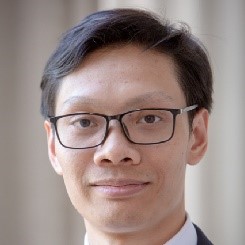 Asst Prof Hung Dinh Nguyen
| Hung Dinh Nguyen received his Ph.D. degree in the Department of Mechanical Engineering at Massachusetts Institute of Technology (MIT) in 2017. He joined Nanyang Technological University, Singapore, as an assistant professor of Electrical and Electronic Engineering in 2018. He is the Siebel Scholar class of 2017 on Energy Science. He worked on a number of joint projects supported by NSF and DOE and in collaboration with ISO New England, LANL, and PNNL. His current research interests lie in complex systems; nonlinear dynamics and stability; power system operation, control, and optimization; Dynamic Security Assessment/Energy Management System; and smart grids. For more details on his research publication, visit his Google Scholar. |
 Assoc Prof Hoay Beng Gooi Assoc Prof Hoay Beng GooiInstructor for: Power System Operation & Planning | Hoay Beng Gooi (Life Senior Member, IEEE) received the B.S. degree in electrical engineering from National Taiwan University, Taipei, Taiwan, in 1978, the M.S. degree in electrical engineering from the University of New Brunswick, Fredericton, NB, Canada, in 1980, and the Ph.D. degree in electrical engineering from Ohio State University, Columbus, OH, USA, in 1983. He worked as an Assistant Professor with Lafayette College, Easton, PA, USA, from 1983 to 1985 and a Senior Engineer with Control Data—Energy Management System Division, Plymouth, MN, USA, for about six years before joining Nanyang Technological University (NTU) in 1991, Singapore. He is an Associate Professor with the School of Electrical and Electronic Engineering. He has been serving as the Co-Director of SP Group-NTU Joint Lab since 2020 and the Chairman of LMAG, IEEE Singapore since 2021. His current research interests include microgrid energy management systems dealing with energy storage, condition monitoring, electricity market, and spinning reserve. |
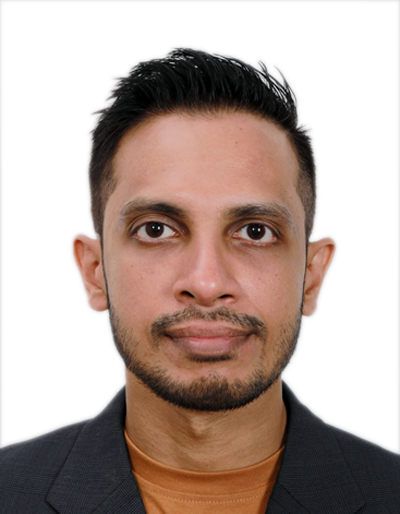 Dr Mohasha Sampath | Lahanda Purage Mohasha Isuru Sampath (Member, IEEE) received the B.Sc.Eng. degree (Hons.) in electrical engineering from the University of Moratuwa, Sri Lanka, in 2014, and the Ph.D. degree from Interdisciplinary Graduate School, Nanyang Technological University (NTU), Singapore, in 2020. He was working as an Electrical Engineer with Sri Lanka Ports Authority in 2015. He is currently a Research Fellow of Blockchainbased Decentralized Peer-to-Peer Energy Trading Project with the School of EEE, NTU. His research interests include convex optimization, distributed energy trading, modelling and optimization under renewable energy-based uncertainties, and optimal power flow. |
Dr Veerapandiyan Veerasamy
| Veerapandiyan Veerasamy (Senior Member, IEEE) received his Ph.D. in Power Engineering from University Putra Malaysia in 2021 and is currently a Postdoctoral Research Fellow at Nanyang Technological University, Singapore. His research focuses on the application of AI in power system operation and control, protection systems, renewable energy technologies, and smart grids. He has contributed to several advanced research projects, including Wireless VPP, first and second life ESS, blockchain-based peer-to-peer decentralized energy trading, a universal HIL platform for AC/DC microgrids, and integration of EV charging stations with real-time network operation. He served as a Guest Editor for the special issues “Application of Intelligent Techniques in Power System Stability, Control, and Protection” in Energies, MDPI Journal, 2023-2024. He is a technical committee member of the International Conference on Smart Power & Internet Energy Systems (SPIES). |
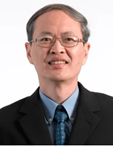 Associate Professor Chan Chok You, John | Associate Professor Chan has been with the School of Electrical & Electronic Engineering since 1988. He received his Bachelor, Master and Ph.D. degrees all from the University of Canterbury, New Zealand. His current area of expertise is on the nonlinear control of dc-dc power converters, focusing mainly on the analysis and control of switching power converters. He has taught undergraduate and post graduate courses, including Electrical Devices and Machines, Circuit Analysis, Power Electronics, Control Systems, Power System Analysis, Power Quality, Systems Analysis. His current research works focus mainly on the analysis and control of switching power converters.
|
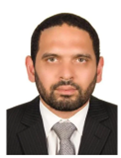 Asst Prof Amer Mohammad Yusuf Mohammad Ghias | Amer M.Y.M. Ghias (S’10–M’14) received the B.Sc. degree in Electrical Engineering from Saint Cloud State University, USA, in 2001, the M.Eng. degree in Telecommunications from the University of Limerick, Ireland, in 2006, and the Ph.D. degree in Electrical Engineering from the University of New South Wales (UNSW), Australia, in 2014. From 2002 to 2009, he held various technical and leadership roles—including Electrical Engineer, Project Engineer, and Project Manager—while working with leading companies in Kuwait. He subsequently held academic appointments at UNSW, Australia (2014–2015), and the University of Sharjah, UAE (2015–2018). Dr. Ghias is currently an Assistant Professor in the School of Electrical and Electronic Engineering at Nanyang Technological University (NTU), Singapore. He also serves as Cluster Director at the Energy Research Institute @ NTU (ERI@N), where he leads the Power Electronics research cluster. Additionally, he is an Associate Editor for IET Power Electronics. His research interests include model predictive control of power electronic converters, hybrid energy storage systems, fault-tolerant converter design, modulation and voltage balancing techniques for multilevel converters, flexible AC transmission systems (FACTS), and high-voltage direct current (HVDC) technologies. |
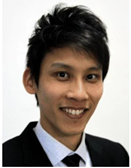 Assoc Prof Christopher H. T. Lee | Dr Lee received his B.Eng. in Electrical Engineering with First Class Honors from The University of Hong Kong (HKU) in 2009, and his Ph.D. there in 2016, earning the Best Thesis Award. He was a Postdoctoral Fellow at Massachusetts Institute of Technology(MIT) under the prestigious Croucher Fellowship. In 2018, he joined Nanyang Technological University (NTU) as an Assistant Professor and was later promoted to Associate Professor with Tenure in 2024. He is also a Nanyang Assistant Professor and a recipient of the Singapore NRF Fellowship (Class of 2020). Dr Lee specializes in electric motors and drives, renewable energy, and electromechanical propulsion. He has authored 2 books, 4 book chapters, 9 patents, and over 270 peer-reviewed papers, with more than 5,500 citations and an h-index exceeding 38. He has led projects totaling over SGD 15 million, with innovations adopted by major firms like Panasonic, Rolls-Royce, and Magna International. He directs a Panasonic-NTU Joint Lab focused on advanced motor technologies. His accolades include the Nagamori Award, IEEE Myron Zucker Award, JSPS Fellowship, and the MDPI Energies Young Investigator Award. He is a Fellow of the IET, UK, and also a visiting faculty member at MIT, Tokyo Institute of Technology, and HKU. |
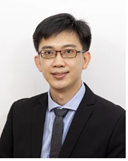 Dr Foo Yi Shyh Eddy Dr Foo Yi Shyh EddyInstructor for: Power System Modelling and Control | Y. S. Foo. Eddy (S’09) received his B.Eng. degree in Electrical and Electronic Engineering (EEE) from Nanyang Technological University, Singapore, in 2009. Subsequently, he received his Ph.D degree in Electrical and Electronic Engineering from Nanyang Technological University, Singapore, in 2016. Between 2014 and 2016, he worked as a research engineer/research fellow under the Cambridge Centre for Advanced Research in Education in Singapore (CARES) project which is part of the National Research Foundation NRF CREATE program. Between 2012 and 2014, he served as a Teaching Assistant for NTU EEE and Renaissance Engineering Programme (REP). He was awarded the NTU EEE outstanding teaching award in 2013, NTU EEE Early Career Teaching Excellence Award in 2018 and Nanyang Education Award (School) in 2021. At present, he is a lecturer with the School of Electrical and Electronic Engineering at Nanyang Technological University, Singapore. |
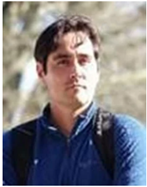 Dr Petr Vorobev | Dr Petr earned a Ph.D. in Theoretical Physics from the prestigious Landau Institute for Theoretical Physics (RAS) in 2010. From 2015 to 2018, he served as a postdoctoral associate at the Massachusetts Institute of Technology (MIT) working in the field of power systems dynamics, stability, and control. During this time, he has co-designed and co-taught a course “Fundamentals of Smart and Resilient Grids” course. Dr Petr’s research interests span different areas of modern power/energy systems, including renewable energy, energy storage, electric vehicles. He has been involved in various research initiatives, such as modelling approaches for complex multi time-scale systems, advanced methods for stability assessment, operation of power systems under uncertainty, plug-and-play approaches for modern power grids. At NTU, Dr Petr teaches and mentors a number of courses in advanced power systems, multi-variable control, numerical methods and algorithms. |

_mobile.png?sfvrsn=aae3006f_0)
